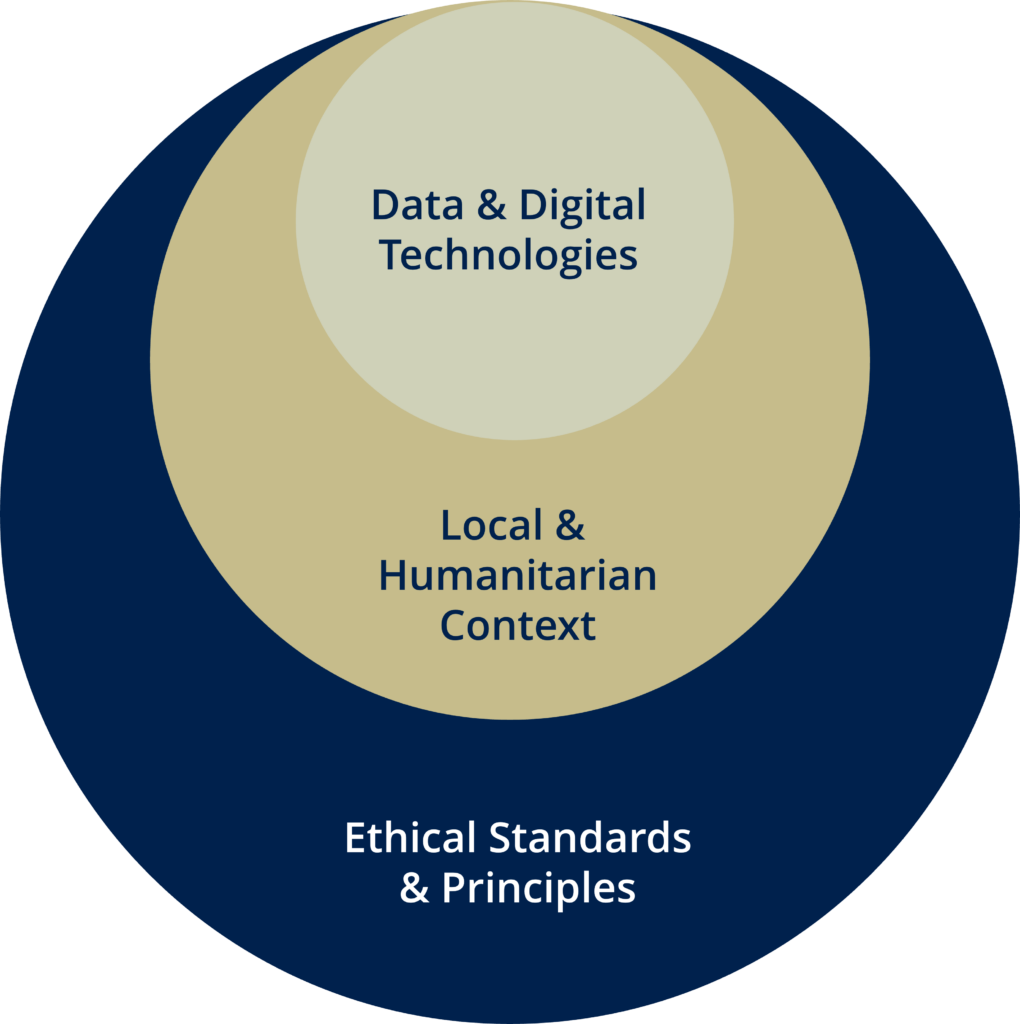Data and digital technology offer tremendous potential to improve the speed, quality and cost effectiveness of humanitarian aid. These can also cause harm however, even in unforeseen ways. The Data & Digital Responsibility policy helps us mitigate this risk of doing harm. It also increases transparency for the users on how digital products and services work and perform. The policy is developed by 510 and helps us and our humanitarian partners leverage the potential of data and digital technology in a responsible way. ‘We believe this updated policy, which now also focuses on digital responsibility matters, will also be of great value to those continually addressing data & digital responsibility challenges in their digital transformation journeys’, says Maarten van der Veen, team lead at 510. Lea aquí nuestra política de Datos y Responsabilidad Digital (ACTUALIZACIÓN: versión 2024).
Política de datos y responsabilidad digital
Al recopilar y utilizar datos personales, el Reglamento General de Protección de Datos (RGPD) de la UE impone a las organizaciones obligaciones vitales en materia de protección de datos. Sin embargo, la política de responsabilidad digital y de datos va más allá del cumplimiento del RGPD y también tiene en cuenta la posibilidad de causar daños mediante el uso de no-personal data and digital technology. This new policy complements our organization’s privacy policy.
510 define los datos y la responsabilidad digital como
“The responsible processing of data and use of digital technologies with respect to privacy, ethical standards and humanitarian principles, bearing in mind potential consequences and taking pro-active measures to avoid harming individuals or communities”.
The figure below shows how we go beyond the protection of personal data. When we design and develop digital solutions we leverage the Red Cross Red Crescent’s (RCRC) global presence to access local knowledge, which then is applied to inform our work. Finally, we apply a range of ethical standards and principles, including our own Movement Principles as well as the humanitarian “do no harm” principle.

La nueva versión
La nueva Política se ha dividido en dos documentos principales: El documento principal (Política), que describe el propósito, los principales pasos del proceso y las plantillas, y un documento de referencia, un documento vivo, que contiene definiciones de terminología común, ejemplos de terminología y principios en la práctica, y varias referencias a fuentes para un estudio más profundo. La Política se ha acortado para facilitar su uso y se ha hecho más hincapié en la centralidad humana, la tecnología digital, el uso ético de los datos y la tecnología, y la importancia de la calidad de los datos.
Version 3 marks a shift in focus, from data protection and privacy to the responsible use of data and digital technology. It focuses less on personal data protection because this is adequately addressed in our organization’s privacy policy. It now includes a focus on the responsible use of digital technology. Its ultimate aim is to ensure that whenever people use digital technology, they are aware of qué se procesan los datos, cómo se procesa, el calidad de los datos y la tecnología y lo que riesgos y beneficios son.
Nota: todas las versiones anteriores de la política quedan sustituidas por la versión 3.0.
Evalúe
Cada doce meses se utilizarán los resultados de la aplicación para actualizar y mejorar la política. A continuación volveremos a pasar por el ciclo de mejora continua, empezando por la fase de evaluación.

Proceso de revisión de la responsabilidad digital
¿Desea obtener más información o implantar la Responsabilidad Digital y de Datos en su organización? Póngase en contacto con jramakers@redcross.nl
Voluntarios
More than 10 volunteers contributed to the making of the policy, among them Kamal Ahmed, Ҫakil Civelek, Marta Castro Diaz, and Saskia Tdlohreg.
Lea aquí nuestra política de Datos y Responsabilidad Digital (ACTUALIZACIÓN: versión 2024).